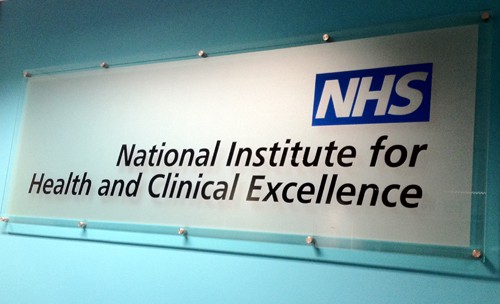
The choice of treatment for certain patients with breast cancer in the UK could be supported by a new gene testing device following draft guidance from the National Institute for Health and Clinical Excellence (NICE).
The UK cost-effectiveness body said that Oncotype DX, which is manufactured by Genomic Health, should be available for NHS use to help doctors make a better informed decision about whether to continue chemotherapy in patients deemed to be at an intermediate risk of metastasis.
It is hoped this will help tackle the problem of both over-treatment, which results in unnecessary use of expensive chemotherapy with its associated adverse effects, and under-treatment, which can result in avoidable deaths in people who had chemotherapy withheld.
Specifically, the recommendation covers the use of Oncotype DX in patients in the early stages of oestrogen receptor positive (ER+), lymph node negative (LN-) and human epidermal growth factor receptor 2 negative (HER2-).
These are forms of breast cancer for which gene expressions tests are thought to be able better determine whether adjuvant chemotherapy will provide benefit in an individual following initial treatment.
Genomic Health will also have to provide part of the £2,580 cost of the test through a ‘confidential access proposal’ for NICE to deem the product cost-effective.
The company said it was pleased with NICE’s draft recommendation for Oncotype DX test, which has already been used to test more than 335,000 patients from over 65 countries, including the US, Canada and certain European nations.
“NICE’s draft recommendation for use of Oncotype DX in clinical practice is an important step forward in bringing personalised medicine and improved outcomes to more breast cancer patients in the United Kingdom and in leading the way for future access to important, clinically relevant genomic tests,” said Dr Christer Svedman, Genomic Health’s European director of medical affairs.
NICE gave the recommendation in draft guidance that turned down three tests from different organisations for similar use.
The body said that it is unable to support the routine use of Agendia’s MammaPrint, Clarient’s Mammostrat or the IHC4 test, which was developed within the NHS itself, because the evidence that these tests can predict the level of response in chemotherapy is “uncertain”.
However, NICE recommended that further research is carried out on whether these tests are effective to inform the treatment of breast cancer patients.
The results of this research could have a big impact on NICE’s decision, especially considering that the IHC4 test, which has been developed by Specialist Biomedical Research Centre (BRC) for Cancer at The Royal Marsden NHS Foundation Trust and The Institute of Cancer Research (ICR), comes at a cost between £100 and £200.
The Mammostrat test, which is estimated to cost between £1,120 and £1,620, is also considerably less expensive, while the MammaPrint is £2,675 – a similar price to Oncotype DX minus the access proposal.
The consultation period for this draft guidance ends on March 11, 2013. It is available on NICE’s website.




